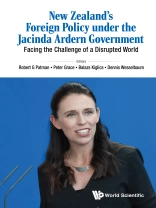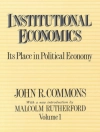The purpose of this book is to examine the foreign policy of Jacinda Ardern’s New Zealand Government between 2020 and early 2023 when the COVID-19 pandemic intersected with an evolving and often tumultuous post-Cold War global environment. This context witnessed the erosion of an international rules-based order and the renewal of great power competition. In particular, the Indo-Pacific has become a contested strategic space, which impacted on New Zealand’s foreign policy interests.
As a self-proclaimed small state, New Zealand faced distinct challenges: the Ardern Government formulated a distinctive foreign policy that drew on the success of its handling of the pandemic as well as Aotearoa New Zealand’s indigenous values, and emphasised the importance of a good international reputation, strong diplomatic networks, and multilateral cooperation to maintain and grow its influence.
This interdisciplinary volume brings together academics, policymakers and practitioners and provides essential reading for anyone interested in how relatively small states such as New Zealand can navigate significant foreign policy challenges in an increasingly complex and contested system of international relations.
Contents:
- Dedication
- Foreword
- About the Editors
- About the Contributors
- Acknowledgements
- Introduction
- Setting the Scene: The Ardern Government’s Foreign Policy Agenda:
- Foreign Policy of Jacinda Ardern’s Government in the Era of COVID-19: Minister Mahuta’s Vision for Aotearoa New Zealand’s Foreign Policy (Nanaia Mahuta)
- The Geopolitical and Economic Context of COVID-19:
- New Zealand and the Indo-Pacific: Adaptation to Changing Geopolitics (Clifford A Hart, Jr)
- The Taniwha and the Dragon: New Zealand’s Relationship with China under the Ardern Government at a Time of Growing Geopolitical Uncertainty (Nicholas Ross Smith)
- Trade Policy under the Ardern Government (Robert Scollay)
- The Promise and Possibilities of Ardern’s COVID-19 Pandemic Stance:
- The New Zealand Public Health Response to COVID-19 and International Implications for Managing Future Pandemic Threats (Philip C Hill)
- Climate Considerations (Alice C Hill)
- Climate Policy in Jacinda Ardern’s New Zealand: A Ngāi Tahu Perspective (Lisa Tumahai)
- Big Global Issues and Soft Power: New Zealand and the Pacific (Marion Crawshaw)
- Security and Foreign Policy Directions for New Zealand during the COVID-19 Era:
- National Security, COVID-19 and New Zealand Foreign Policy (Bethan Greener)
- The Ardern Government’s Independent Foreign Policy at a Time of Great Power Competition and Australia–China Tensions (Reuben Steff)
- New Zealand’s Asia Story: The Curious Case of New Zealand–India Relations (Suzannah Jessep)
- Conclusion: Implications for the Foreign Policy of Ardern’s Government:
- The Era of COVID-19 and Beyond: Some Reflections on the Implications for the Foreign Policy of Jacinda Ardern’s Government (Geoffrey Miller)
- Index
Readership: Advanced undergraduate and graduate students, researchers and practitioners in the fields of New Zealand Foreign Policy, International Relations, and Geopolitics.
Key Features:
- Takes a comprehensive look at her government’s historical and contemporary challenges, including a review of the COVID-19 programme, indigenous policies with reference to climate change, grand strategies in dealing with China’s rise, and forging new trade relationships
- Includes highly respected contributors like the Minister of Foreign Affairs and Trade, an eminent epidemiologist, experienced trade and security diplomats, international relations scholars and indigenous leaders
- Presents wide-ranging perspectives and offers particular case studies for those who are interested in the leveraging of successful domestic policies to take on global challenges












